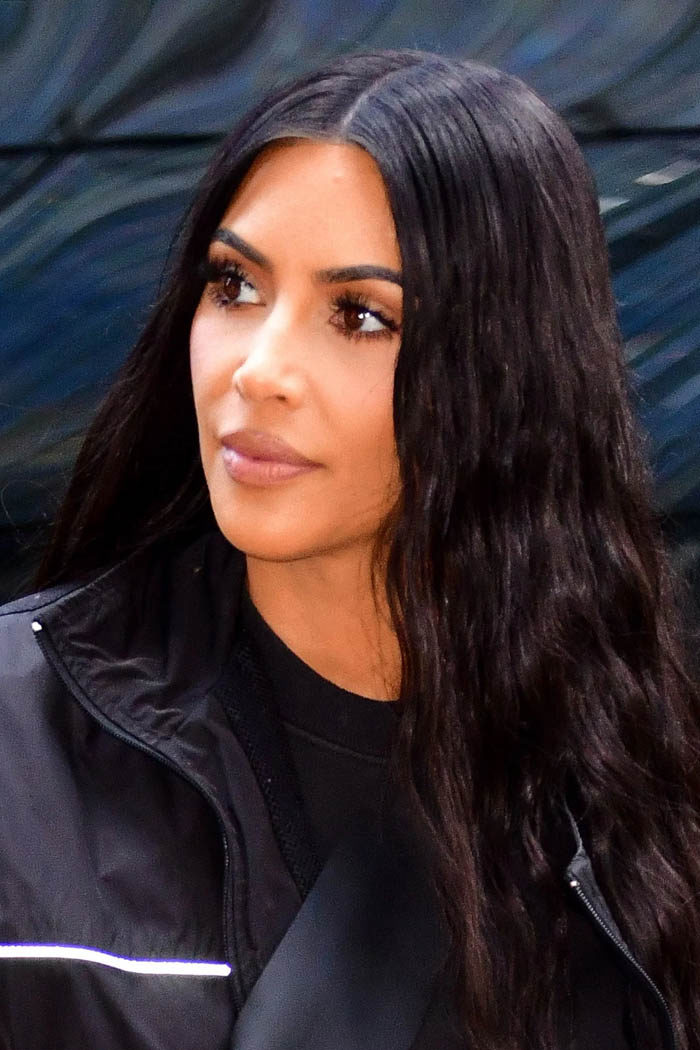Whether its Kylie Jenner posting pictures of her hair in twists or Kim Kardashian naming her shapewear “Kimono” without regard for the word’s meaning in Japanese culture, the accusations of cultural insensitivity have been flying for quite some time.
Now Kardashian is once again on the receiving end of this criticism. This time, it’s a comment about her makeup brand and her own pale skin that have critics calling foul.
Kardashian has a long history of being seen as someone who attempts to associate herself with Black culture and to be seen as biracial.
One such incident occurred when Kardashian appeared on the cover of 7HOLLYWOOD. In the photograph, Kardashian has on a dark wig and sports a deep tan several shades darker than her natural skin tone.
Many accused Kardashian of trying to mimic iconic Black entertainers like Diana Ross. This incident led people like Wanna Thompson, a culture critic who is tuned in to the issue of cultural appropriation in the entertainment world, to accuse Kardashian of “blackfishing.”
Blackfishing refers to the act of changing one’s appearance to give the impression of African American heritage that isn’t actually present. It’s typically perpetuated by white women and often portrayed via social media accounts. It might consist of deeply darkened skin or traditionally Black hairstyles — like cornrows.
Kardashian is not the only influencer to come under fire for the controversial practice. Swedish Instagram model Emma Hallberg has been held up as a prime example of someone altering her appearance to give the impression that she is Black. Ariana Grande has also been accused of blackfishing.
White girls if you want to pass as Black, how about using your platforms to address the injustices and discrimation actual Black people face. Don’t just appropriate, Appreciate the people you are imitating #emmahallberg pic.twitter.com/gpmkvB0BZj
— Niccole Nero Gaines (@2CsNiccole) November 19, 2018
The problem with the practice is that it allows people who are not marginalized by racism and institutional prejudice to take the parts of Black culture that they find aesthetically pleasing without having any lived experience as a person of color. Many critics liken blackfishing to the damaging practice of blackface, a hurtful stereotypical darkening of the skin that has its roots in minstrel shows when white actors would portray Black characters in demeaning ways.
As far as Kardashian, sources close to her responded to the magazine cover controversy by blaming the lighting for making her appear darker. The source also pointed to her Armenian ancestry as a source of her tanned skin.
View this post on Instagram
While Kardashian seemed to shrug off the concerns over her magazine cover, plenty of critics see her as a long-standing recipient of attention for her cultural appropriation. Writing for Madame Noire, Veronica Wells pulls no punches when she accuses the whole Kardashian family of having “built an entire empire co-opting Black features, aesthetics and relationships with Black men.”
She then turns to a recent example to demonstrate that Kardashian continues to use this tactic. In a promotion for her makeup brand KKW Beauty, Kardashian shared before and after images of her body makeup.
She showed two photos of her hand. The “before” photo is pale, and the “after” photo is bronze. In the caption, Kardashian explained that the product “is perfect for hands bc my hands are always pale.”
For many critics, the fact that she would once again intentionally darken her skin after having already been criticized for appropriating Black culture and not recognizing the harm she does by doing so is a step too far.
They see this promotion as a clear disregard for the concern members of the Black community have made about Kardashian’s prior actions and a failure to adequately address them.


